




The Call to Follow Jesus
Fans or Followers?
Disciple-makers in the Bible
Ross Winchester
Discipling Nations
Why do I need to attend a local church?
Making
Teenage Disciples
Paul de Jong
But God...





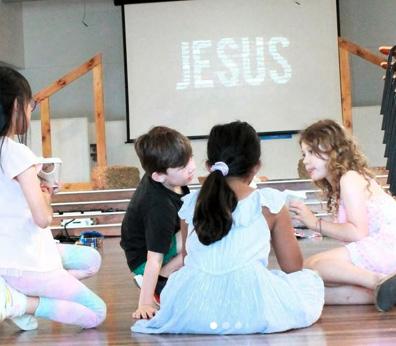
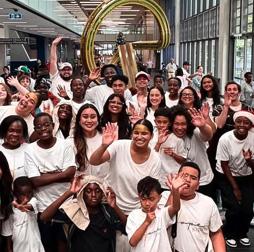



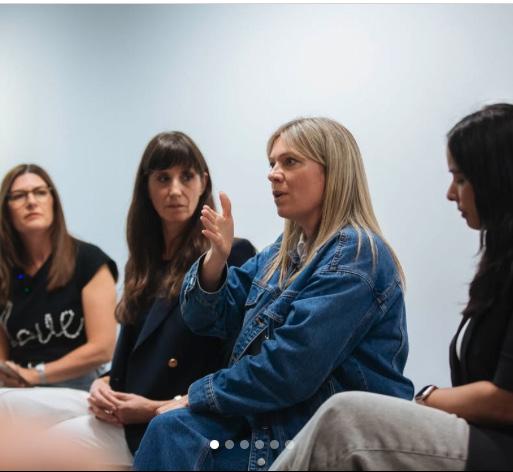
Sensing the seasons was the heart of National President Wayne Alcorn's announcement to the ACC family at the end of 2024.
'After prayerfully reflecting on the past 16 years, I feel very strongly that my season as your National President is coming to an end,' he shared. 'For that reason, I will not be nominating to continue to lead our magnificent movement forward beyond the end of our 2025 National Conference.'
He went on to point to the next generation of leadership.
'Now it is time for another generation to take up the mantle. What I’m asking our pastors to do is to pray that God would raise up the right person to lead us forward, because I believe our best days are still ahead of us.'
The ACC National Conference is where ordained ACC pastors elect the National Executive team and officebearers for the following two-year conference period. The 2025 National Conference will be held on the Gold Coast from 29th April to 1st May
'It's been an incredible honour to serve over the past 16 years,' stated Wayne. 'It is important to hear from the Holy Spirit about decisions that need to be made. I pray that God would guide us and prepare us for what's ahead.'
'Lyn has been at my side the whole way, and she's supportive of this decision,' Wayne affirmed. 'Our prayer for 2025 is that you, your church and your household will enter into an incredible, exciting new season in God.'
ACC25 Info: conference.acc.org.au
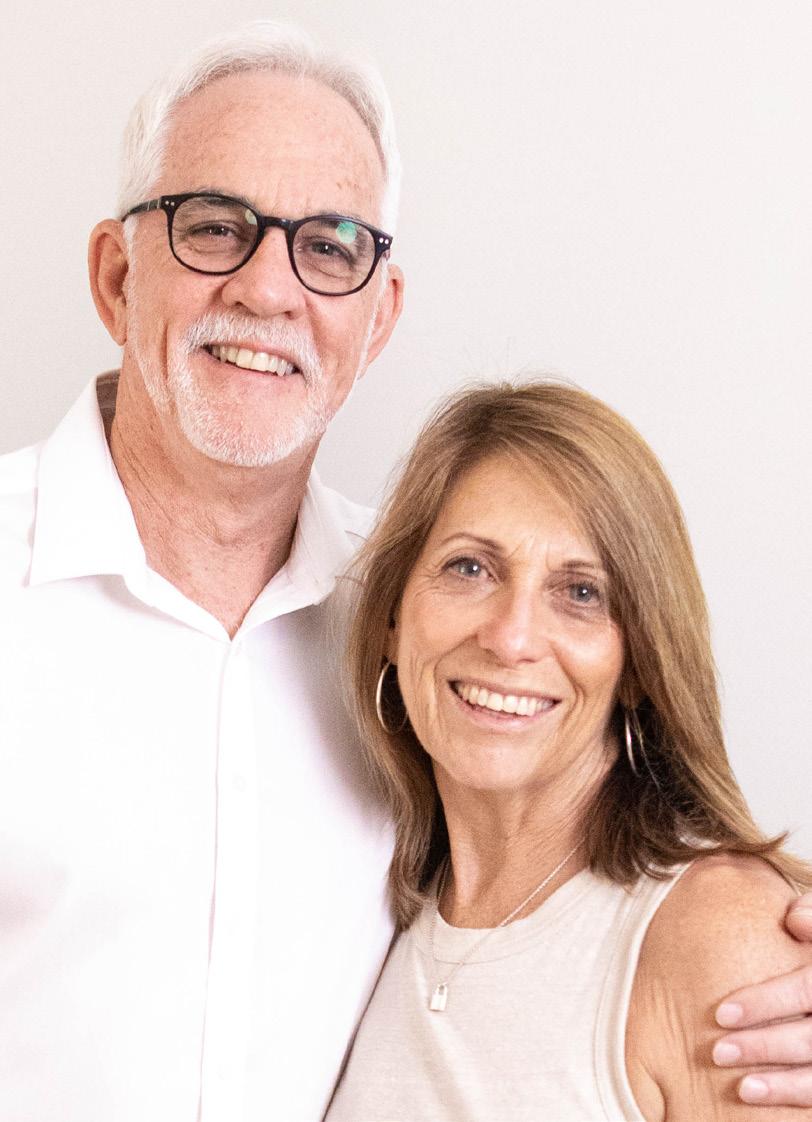
ACC pastors and leaders from churches across Australia and overseas have been gathering together for over eight decades for the bienniel National Conference. The Gold Coast will once again be the location for the 2025 Conference as we celebrate 88 years as a Movement. Guest speakers have been confirmed as Glyn Barrett and Paul & Maree De Jong.

Glyn Barrett is the national leader of the Assemblies of God in the UK, overseeing over 500 churches across Great Britain. He spent his childhood and youth in Australia, graduating from Alphacrucis college in 1995. Glyn and Sophia pastor Audacious Church in Manchester, UK.

Paul & Maree de Jong have emerged from one of greatest challenges of their lives, with the testimony of ‘But God…’ . They have been in ministry over forty years and are the founding pastors of LIFE, a multi-campus church in New Zealand and Australia.
All the information and registration details can be found at conference.acc.org.au including Kids and Youth programs, Parent's Lounge facilities and Streams.

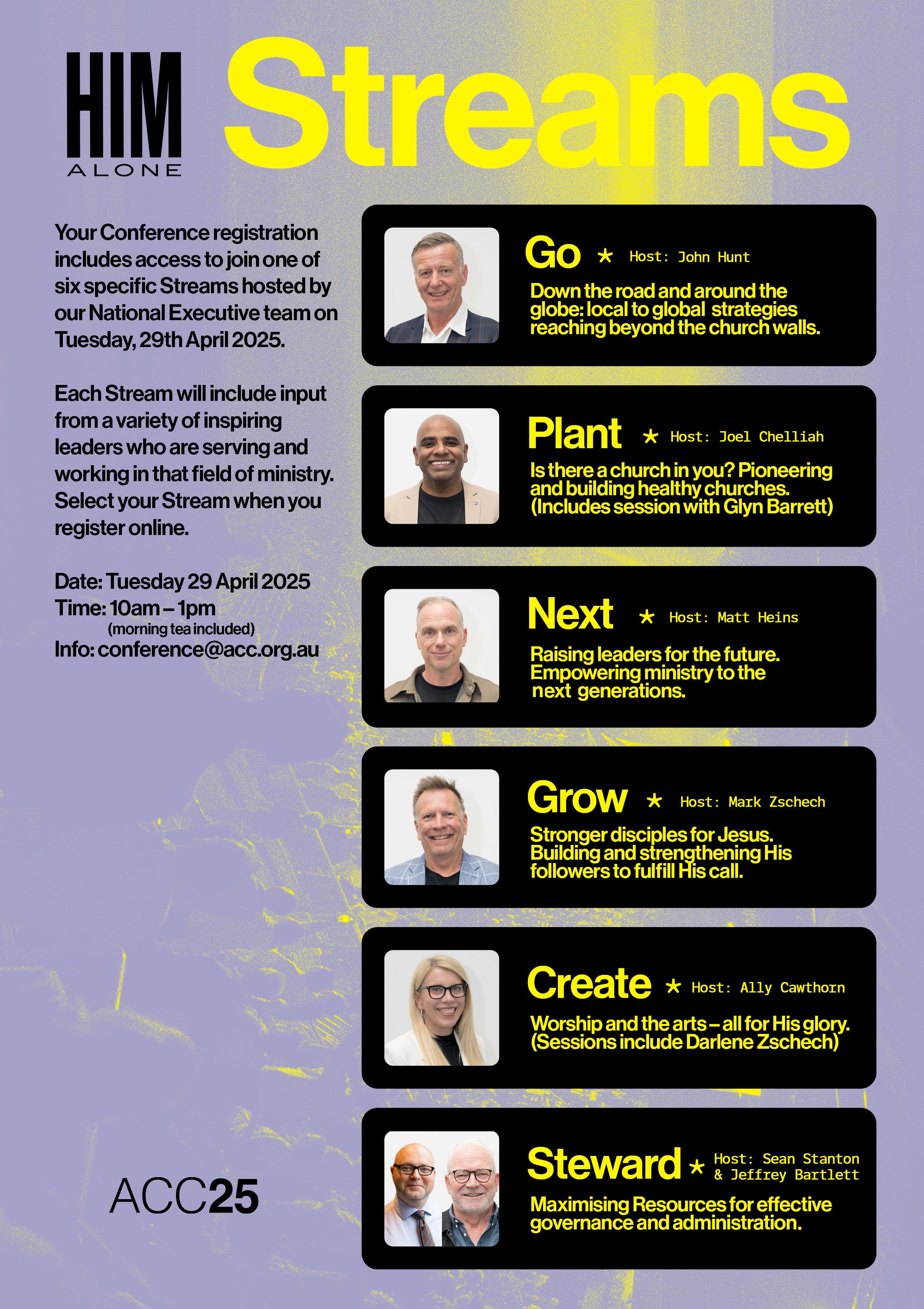
By Paul de Jong
We all know what it is to have things happen that we never expected. Sometimes they may be small, and though we didn’t want them to happen, we’re able to adjust. But sometimes, the unexpected can be life-changing.
On September 9, 2021, I went on a bike ride, as I generally did once a week. As I was riding down a steep road, a lady (we later found out she was homeless and living in her vehicle) unexpectedly opened the door of her parked car. Unfortunately, I didn’t see it in time, and crashed straight into it.
Amazingly, the accident happened right outside the residence of an anaesthetist, who immediately rang an ambulance to take me to hospital. I’d injured my shoulder quite seriously with a torn rotator cuff and many cuts and bruises. At the time, that seemed like quite enough to deal with. But little did we know that this was only the first link in a chain of unexpected events.
Concern began to set in as we noticed I was struggling with disorientation and my cognitive ability becoming less astute. Was it a delayed concussion? We went through a number of consultations and assessments to explore that. But eventually, the doctors decided to send me for an MRI scan to figure out what was really going on.

Shortly after, Maree had a call from the specialist. I was about to go out on the boat with some family members, but the specialist insisted: “No, you need to call Paul and get him to come back in immediately.” It was obvious that something very serious was going on.
The specialist said, “The MRI has revealed three brain tumours, two of a major size. We need you to go to the hospital immediately to undergo further examinations.” Though further tests were required, the upshot of the specialist’s news was that the outlook was not good; that based on what they were seeing, this prognosis was stage-four terminal melanoma cancer.
What do you do when you run into what others would see as a dead end? When the medical prognosis is that there is no hope? When everything feels impossible? These were the questions I was asking myself. Yet incredibly, as we began to try and navigate this unasked-for future, God was already at work.
Paul de Jong and his wife Maree are the founding pastors of LIFE church, in New Zealand and Australia.

©2024 Extract from But God... published with permission.
'God doesn't work from 'now forwards'. He works from 'eternity back.'.' – Paul de Jong
ButGod... tells the story of navigating one of the biggest challenges of Paul de Jong's personal life – the completely unexpected diagnosis of inoperable, terminal cancer. CLICK HERE FOR INFO OR TO ORDER


‘ GO AND MAKE DISCIPLES OF ALL NATIONS...’
— JESUS

As ACCI’s longest-serving Field Worker, Ross Winchester is considered a legend of the mission field. For more than 40 years, he’s followed Jesus’ call to disciple the nations; sharing the gospel throughout north and southeast Asia.
An early calling and a foundation of service
From the moment he stood up at an altar call and gave his life to Jesus, Ross sensed a call to missions. That was in 1971. It would be 12 years before he’d leave Australia and head to his first overseas posting. During these years, he got connected into a local church, grew in his relationship with God and served wherever he could.
“I was a Sunday school teacher, bus driver and deacon. I’d visit people in hospital and help with the youth group,” Ross says. “I was the first one there and the last to leave.”
“It was all about preparation and service because I figured, if you’re too big to serve, you’re too small to lead.”
Ross eventually took on a staff role at his church and later went to Bible college. Throughout this time, he felt God reminding him that this was the call He’d placed on Ross’s life and that He would equip him to do
it. “I came to realise, missionaries are just very ordinary people doing extraordinary things for God,” Ross says.
The first door opens
Despite having China on his heart, the door to Thailand opened first, when the superintendent of the Thailand Assemblies of God appealed for Australian missionaries to come. Ross reflects that unlike most missionaries today, he and his first wife Bronwyn moved to Thailand with little knowledge of the country or its people, having never visited before. But they went willingly, knowing that this was the door God was opening.
“We had never been to Thailand, didn’t know anyone in Thailand, didn’t speak the language. We had never met a Thai person, never even eaten Thai food… But we just felt this call of God,” Ross says.
The couple were in Thailand 11 years, where they raised a family and led a team of Thai nationals who travelled throughout the country’s southern provinces for ministry. They also planted several churches and served in the AOG Bible College in Bangkok.
They eventually returned to Australia to help their eldest son settle into university but couldn’t get visas to
return to Thailand. During the years that followed, which included a brief stint in the Philippines, Bronwyn was diagnosed with cancer and sadly passed away.
The China years
Sometime later, while living in Australia, Ross met Donna – an American missionary who’d been working in China. They married and began ministering into various parts of the world from their home base of Australia. Eventually, they made the move to the country that had long been on Ross’s heart. During their 20 years in China, they trained missionaries and underground church leaders, organised large concerts with Australian worship bands and ran a community centre.
After they felt God calling their time in China to a close, Ross and Donna relocated to Thailand where they’re now training and equipping existing and emerging leaders in the Thai churches. Their leadership development ministry has expanded to working with Hmong, Karen and Lahu leaders. They also provide practical assistance to Karen people in Thailand and across the border in Myanmar who have been affected by Myanmar’s civil war.
ACCI Director JOHN HUNT spoke to ACC's longest serving missionary ROSS WINCHESTER about the call of God, making disciples and lessons from over forty years on the field.
JOHN HUNT: What have you learned about God in this journey?
ROSS: Firstly, God is always faithful in every season. Second thing is that God is never on time, according to my expectations. That’s a learning curve. He’s the God of opportunity. There is a difference between expectation and expectancy. We call it faith sometimes but expectation is about what I want. Expectancy, on the other hand - the best way I can describe it is in the words of Robert Schuller: ‘What are You going to do today and how can I help?’
JOHN: That’s a great prayer. What have you learned about you?
ROSS: I’ve learned that I’m nothing without God. His strength is made perfect in my weakness. I’ve learned He can use imperfect vessels. I’ve also learned the difference between being flexible and fluid. It is still a learning curve for me. Sometimes opportunity comes dressed up as interruptions. He is the God of opportunity that opens little doors that are not in our script. We have to be willing to go off script.
JOHN: In the midst of crisis, particularly your current battle, have you seen opportunity?
ROSS: I was diagnosed with oesophageal cancer. The doctor said to get your affairs in order. I’m not in denial – I’ve seen the scans and the cancer is there. I’m believing for God to finish what he started. I’m here for a purpose and He is opening incredible doors. We wanted to get back to the field – where God has called us to be. The difference between a calling and a job – a job is what you’re paid for; a calling is what you’re made for. There is no use-by-date on the call of God. As long as we’re breathing, we are going to serve God to our last breath.

‘Missionaries are just very ordinary people doing extraordinary things for God.’
JOHN HUNT: What would you say to those who feel the call to the field when they hear missionaries share at their church. What would be their next steps?
ROSS: The next step is preparation. Be involved in your local church. Be a learner; and even when you go to the field, continue to be a learner. There are different roles we can do as a missionary – be a learner before you’re a teacher.
JOHN: What advice would give to others who’ve been on the field a while?
ROSS: There are extreme approaches – either take the colonial approach – or those who go native.
Be a storyteller, not an accuser. Stories are very powerful and are less intimidating or confronting than preaching. That’s the way you bring the Gospel to people of other cultures..
Also ask the question: what God has been saying to these people before I got there.
JOHN: Two things strike me about you, Ross: your boldness and your humility. Those two things together aren't seen in too many people. It’s the manifestation of Christ in your life. If you think of the lion and the lamb – there you see the manifestation of humility and boldness. Your journey has been fascinating. Your fruit will no doubt live on for generations to come. We have nothing but love and respect for you.
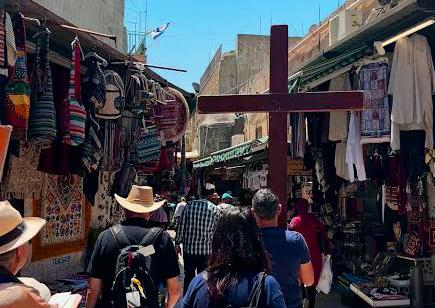
By Sean Stanton
In the New Testament, the term ‘disciple’ is used 269 times instead of ‘Christian’, which is used only three times. It is interesting because Jesus never asked anyone to be a Christian; He called us to be His disciples and follow Him. There is a vast difference between being a cultural Christian and being a disciple of Jesus.
• A cultural Christian follows Jesus if it is convenient.
A true disciple follows Jesus even if it is not.
• A cultural Christian asks, “What can Jesus do for me?”
A disciple asks, “What can I do for Jesus?”
• A cultural Christian enjoys the benefits of the cross. A disciple embraces the sacrifices of the cross.
• A cultural Christian is a fan of Jesus.
A disciple is a follower of Jesus.
While walking by the Sea of Galilee, He saw two brothers, Simon (who is called Peter) and Andrew his brother, casting a net into the sea, for they were fishermen. And He said to them, “Follow Me, and I will make you fishers of men.” Immediately they left their nets and followed Him. Matthew 4:18–20 (ESV)
The characteristics of a disciple will reveal the three aspects of Jesus’ words.
Jesus said to His disciples, “Whoever wants to be My disciple must deny themselves and take up their cross and follow Me. For whoever wants to save their life will lose it, but whoever loses their life for Me will find it. What good will it be for someone to gain the whole world, yet forfeit their soul?' (Matthew 16:24–26 NIV)
When we think of the cross, we think of a symbol or wearing a piece of jewellery. To the original hearers, the ‘cross’ was the worst possible form of execution.
When Jesus explained what being a disciple meant, He presented us with two contrasting approaches to life:
• Deny yourself or live for yourself.
• Take up the cross or ignore the cross.
• Follow Christ or follow the world.
• Keep your soul or lose your soul.
Following Jesus as a disciple is making up your mind, giving up your autonomy, and taking up your identity in Christ.
Jesus said to them, “Follow Me, and I will make you become…” (Mark 1:17 ESV)
As we follow Jesus, we change. James and John left their father, the nets and the hired hands to follow Jesus. What kind of character did these men have when Jesus called them? Jesus nicknamed them “Sons of Thunder” (Mark 3:17). When the Samaritans snubbed Jesus and His disciples, James and John’s anger boiled over, and they asked Jesus, Lord, do you want us to call fire down from heaven to destroy them?
(Luke 9:54 NIV)
Jesus rebuked them for their suggestion, but He did not cancel them. Instead, Jesus pulled them closer to Himself to transform them. Amazingly, by the end of his life, John was known not as a ‘Son of Thunder’ but as the ‘Apostle of Love’. He wrote more about love than any other New Testament author.
The Mission of Jesus
Jesus came to them and said, “Therefore go and make disciples of all nations, baptising them in the name of the Father and of the Son and of the Holy Spirit, and teaching them to obey everything I have commanded you.”‘ (Matthew 28:18–20 NIV)
“Therefore go” is even better translated, “Therefore, while going into the world, make disciples.” Being a disciple of Jesus compels us to make disciples who will follow Him.
Consider that the first directive that Jesus ever said to Peter was “Follow Me” (Matt 4:19), and the last thing that Jesus said to Peter was also “Follow Me”. (John 21:22) Are you prepared to take up your cross and follow Him, allowing Him to change you, and then go and make disciples?
Sean Stanton is the ACC National Secretary. He and his wife Lynda are the senior pastors of LIFE UC in Canberra, ACT.
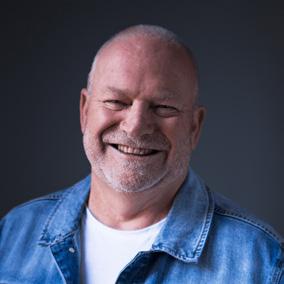
By Dr Jacqueline Grey
To be a disciple is to be a follower of Jesus. We are all apprentices in the family business. Each learning the trade of being like the Master, Jesus. Being tradies and tradie-ladies is a life-long vocation. So is disciple-making. There are numerous examples of disciple-makers in the Bible. They remind us that discipling others isn’t a formula. Discipling can be done in many varied ways. Yet, each model has the same goal of influencing others to pursue God deeply. Let’s look at some examples from the Old and New Testaments of different approaches to see what we can learn from them.
If ever there was a reluctant disciple-maker, it was Elijah. He called Elisha to the ministry then almost rejected his presence (1 Kings 19:19-21). But Elisha pursued the ministry call and eagerly gave up his old life to follow Elijah as an apprentice prophet. They walked together and ministered together, with Elisha learning from his mentor (1 Kings 19-2 Kings 2). They became like family. In fact, at their final parting, Elisha calls Elijah 'my father' (2 Kings 2:12). Elijah passes on to him an anointing of 'double portion'; the inheritance normally received by an elder son (2 Kings 2:9). As Elijah’s successor, Elisha goes on to have an even greater ministry than his mentor.
What do we learn from Elijah for today? Discipling is walking with others in life and ministry.
JESUS:
Jesus modeled for us the perfect life. He lived and walked, full of the Holy Spirit. Jesus was tempted like us and came through it victorious. By becoming like us, He made it possible for us to become like Him. Just before His ascension, Jesus gave two key instructions to the disciples.
First, they were to make disciples of all nations (Matthew 28:18-20). Teaching others to obey all Jesus had told them. Its crucial that we instruct new disciples in the way of Jesus. Second, they were to wait to receive the Holy Spirit. We need the Spirit of Jesus to help us follow Him. The Spirit was given at Pentecost to empower us to be witnesses and preach boldly the gospel.
What do we learn from Jesus for today? Discipling is teaching others to follow Jesus in the power of the Spirit.
PAUL: MODELLING IN THE MESS
Paul said to the believers in Corinth: “Follow my example, as I follow the example of Christ” (1 Cor 11:1-2). It’s the responsibility of every mature believer to model the Christian life. While modern apprenticeships often focus on learning what to do, our family business is about learning to be. To be like Jesus. The great news is that the Holy Spirit works in us to do this task of transformation (2 Cor 3:18).
Paul provides another model of discipleship when he says 'follow my example' (1 Corinthians 11:1-2). Following Jesus can be difficult. Or is that just me? Taking up our cross can be heavy. We have to love others even if we don’t like them. We’ve all been tempted to do the wrong thing. Sometimes we give in to that temptation. Sometimes we fail to meet the standard of loving others like Jesus. Sometimes we mess it up. Badly. But when we’re knocked down, we get up again. We repent. We repair. Paul learnt to do that. You’ve learnt to do that.
In 1 Corinthians 10, Paul instructed them in how to endure temptations. He also taught them how to live in freedom by seeking the good of others. Paul modelled it for them. Whether we are eating or drinking – whatever we are

doing – we do for the glory of God. This includes not behaving in a way that could cause a new disciple to stumble in their faith. These are the little sufferings for Christ we model.
What do we learn from Paul for today? Discipling is modelling living in freedom, even in the mess.
EUNICE: A DISCIPLING MOTHER
The final example to note is Eunice. Eunice taught her son Timothy the way of Christ from a young age, even though her husband was an unbeliever. Paul honoured Eunice and her mother Lois in 2 Timothy 1:5 for their discipleship of Timothy. Paul encouraged Timothy to continue in his knowledge of the Scriptures taught him from infancy (2 Tim 3:14-15). Timothy became a key leader in the early church and co-worker of Paul (1 Cor 4:17, 1 Tim 1:2).
What do we learn from Eunice for today? Discipling is instilling a love for and confidence in God’s Word.
These various models show that discipleship everywhere in the Bible. These examples encourage us to disciple younger believers by sharing our ordinary, everyday life. Being authentic. Yet also being deliberate to instill in them a love for God’s Word and reliance on the Holy Spirit.
Suggested Reading: Emotionally Healthy Discipleship: Moving from Shallow Christianity to Deep Transformation by Peter Scazzero
Practicing the Way: Be with Jesus. Become like him. Do as he did. By John Mark Comer
The Great Omission: Rediscovering Jesus’ Essential Teachings on Discipleship by Dallas Willard
The Disciple: On Becoming Truly Human by Lucy Peppiatt
Rev Prof Jacqueline Grey is an ACC Pastor and Professor of Biblical Studies at Alphacrucis University College.


By Joel Chelliah
I recently met a man who used to be a pastor of a local church. This was until he experienced some serious 'church hurt' and stopped fellowshipping completely. As he shared with me, he emphasised his love for the Lord, His word and how he still shared his faith but just didn’t belong to a local church. He finished off the conversation by saying, 'After all, you don’t really need to be a part of a church to be a Christian, right?'
That’s a common phrase that I have heard so many times before (usually from disgruntled Christians.) Without having time to think, I immediately asked, 'Can I ask you which scripture do you base your convictions on?'
The two of us sat there stunned at that question. I quickly added, 'I don’t mean to be rude but as followers of Jesus, we are meant to base our convictions on His Word so I am interested to know where in scripture does it say you can love and serve Christ and be disconnected from His bride?'
That man got up and left slightly offended.
What I meant to say was that my Bible tells me different:
'Do not give up meeting together, as some are in the habit of doing, but encourage one another—and all
the more as you see the Day approaching.' (Hebrews 10:25)
The scriptures are constantly encouraging us to be one body. The truth is that Jesus is perfect but the Church is not. In fact, she has never been.
So many Christians say things like, 'If the Church of today was like the Church in Acts, I would attend, serve and give.'
Really? Have you read the Book of Acts?
We need to realise that the Church has ALWAYS been
• broken and yet still beautiful.
• flawed and yet still favoured
• complicated and yet still chosen
• stained and still the only solution for the world.
It is this broken, flawed Church that Jesus said He would build. The enemy does everything in his power to keep believers from their local church so that they will not flourish.
'Planted in the house of the Lord, they will flourish in the courts of our God. They will still bear fruit in old age, they will stay fresh and green.' (Ps 92: 13)
I believe you can never reach your full destiny unless you are planted in a local church.
HEALING IS A GROUP ACTIVITY
'Is anyone among you sick? Let them call the elders of the church to pray over them and anoint them with oil in the name of the Lord.' (James 5:14)
Of all the ways He could have healed you, God decided to do it through the Church and its flawed leadership. If the enemy can keep you disconnected from the Church through fear, offense, wrong expectations and busyness, he can keep you from your healing.
DISCIPLESHIP IS A GROUP ACTIVITY
Some Christians believe that 'as long as I have Jesus , I don’t need anyone else', but that’s far from biblical. In fact, the opposite is strongly encouraged.
'When Jesus taught His disciples to pray, He said, ‘our’ Father, not ‘my’ father. This was to remind us that we weren’t to walk through this journey alone. Even prayer is encouraged to be a group activity.'
Let's never forget that Jesus always discipled His students in a group.
He took Simon the zealot (a political movement that sought to incite the Jews to rebel against the Roman Empire) and placed him with Matthew the tax collector (a man who worked for the Roman Empire at the Jews expense). The Lord puts these two very different people together and lets iron sharpen iron. This is what true discipleship looks like.
This is why the Bible records that the disciples were always arguing with each another. Discipleship has always been a group activity.
'Two are better than one, because they have a good return for their labor: If either of them falls down, one can help the other up. But pity anyone who falls and has no one to help them up. Also, if two lie down together, they will keep warm. But how can one keep warm alone? Though one may be overpowered, two can defend themselves. A cord of three strands is not quickly broken.' '(Ecclesiastes 4: 9-12)
We must never forget what Jesus calls the sheep that are away from the flock – He calls them lost. He goes after her, picks her up and brings her back to the rest so that she is not vulnerable and all alone.
Today when people disagree, they separate and get offended. They sit on different sides of the congregation; some even move churches or don’t go to church at all. But this will never mature us into the disciples that we are called to be.
I for one am so grateful that the local church is imperfect. If it wasn’t for this, I would be out of place. It is a beautiful mystery that continuously baffles me, how God can use broken people to bring healing and discipleship to each other.
Joel Chelliah is a member of the ACC National Executive. Joel and his wife Sharon are the senior pastors of Centrepoint Church in Perth.

A foundational course creating resilient disciples in your church


Forgiveness

Generosity

Overcoming





Van
How
Diving

By Paul Bartlett
What do you think of when you think of Community Engagement? Most people would say food hampers, Community grocery stores, or maybe a seasonal event like Christmas Carols? One word that is not often used is 'discipleship'! Yet discipleship is exactly how you should think when you think of the people outside the walls of your church.
One of the reasons why we don’t see more success with our community programs is we see these programs as tasks or things we do for others. Can I encourage you to rethink your why on Community engagement.
The best way to see your Community is as a relationship first, not a program or activity.
Several years ago we did this very thing in our church. We had been running a community kitchen every week for years, after a while we realised that the same people were turning up and nothing was changing in their lives. In fact, they had become dependent on us!
Everything changed when we took the time to get to know the people coming along to the kitchen, and guess what? We began to discover their passions, gifts and talents which allowed us to connected them to people who needed those skills. Before long we had begun to break the cycle of poverty in their lives.
We have a reminder in that Community Kitchen that simply says, 'We don’t just feed people we get to know them!'
We often only disciple people from the day they come to church onwards. We all know this is not enough. We live in a new era which requires new understanding and training. It’s time to train every Christian in our church how to disciple the people in their world to Christ even before they have darkened the doors of the church.
Amazing things happen when we mobilise everyday Christians into leading their friends, family and co-workers to Christ in the natural rhythm of their lives!



Paul Bartlett is the national leader of ACC Community Engagement..



Whether a heartfelt talk between friends, or a spiritual dialogue within your congregation;
conversations take place sitting down.


Seating is crucial in completing a worship space—it fosters connection, turning it into a true community hub where your congregation can gather comfortably to share, listen, and grow together.
As a social enterprise rooted in Christian ministry, Alloyfold understands what is needed to create an inspiring environment for your congregation.
We customise our seats to fit seamlessly into your space, offering various upholstery and configuration options tailored to your needs. Whether your style is traditional or modern, our versatile range will enhance and compliment your interior while providing vital comfort and support.

Whether you are updating or building new, we will help you find the best seating solution for your church.
Start by viewing our range on our website by clicking below:




By Ally Cawthorn
“I never knew you.” These words were the response of Jesus to those claiming to have a relationship with Him recorded in Matthew 7:21-23.
These words challenge the reader to consider whether they are determining their own depth of relationship with Christ through the operation of spiritual gifts in their ministry, rather than the far less measurable, but infinitely more important depth of spiritual intimacy. Jesus disregards the appeal to miraculous signs accompanying their ministry as proof of relationship with Him, thereby correcting the false assumption that operating in those gifts always reflects mature relationship.
Could it be that those who appealed to relationship with Jesus as evidenced through their spiritual gifts were in fact His fans but not yet His followers? Clearly, they knew about Jesus and were even able to demonstrate power in their ministry, yet they appeared to have deceived themselves into believing that they would be counted among His disciples despite the fact their knowledge of Him had not translated into a biblical, experiential knowing. Therefore, fans are those who can talk about Jesus, study His life and ministry, even (it would seem) operate in
various gifts - yet not actually follow him. As a result, they have not allowed his words or teachings to change them into the kinds of people who are more interested in knowing him and being changed by Him. Instead, they continue to be in pursuit of the power of the Kingdom without a desire to know the King.
In contrast to these fans, disciples of Christ are called to follow him – to know him, commit to being transformed by him and to be known by him. Disciples are not necessarily identified by the signs that accompany their ministry, but rather through evidence of the fruit of the Spirit. Fans pursue the signs, but followers desire to know the One to whom the sign points.
When we read on in Matthew chapter 7, Jesus goes on to differentiate between those who hear his words from followers who hear and practice them. Followers then, are those that when the wind blows and floods come - remain steadfast as they can hold the tension between the goodness of God and the temporal momentary troubles of earth. Fans, on the other hand, do not have the solid foundation of true relationship and therefore walk away when pressure mounts.
Jesus goes on to tell us that when
‘that day’ comes where we stand face to face with Him and weigh up our lives, He will not be measuring how many demons were cast out through our ministry or how powerful the prophecies we gave were – but whether we heard His words and practiced them. Did we accept the invitation to follow Him, even when that path leads to the cross?
Fans celebrate the cross, but followers take it up, thus changing them into the image of the one who has captivated their lives and hearts and can wholeheartedly sing, 'I have decided to follow Jesus; the cross before me, the world behind me – no turning back.'

By Andrew Groza

Discipleship is all the rage at the moment. Whilst this is so refreshing – it is after all what Jesus calls His Church to focus on – I’m sometimes concerned that there is a lack of clarity around the concept. Without clarity we find ourselves taking steps in the right direction but with a vague picture of what the destination might look like. In recent years, I’ve heard people in churches use the language of discipleship, but after a little while you realise that what they are talking about is really mentoring or coaching. Coaching someone in their skills of leading a small group or singing or playing a musical instrument on the worship team, is, when done from a healthy motivation, positive. But it is not biblical discipleship.
Sometimes discipleship is framed as personal growth or as becoming more disciplined in regular spiritual practices, but this too is not discipleship. Discipleship will no doubt include the personal and spiritual growth of an individual. One would hope to grow in personal capacity, maturity, and adeptness at practicing the spiritual disciplines written into the rich tradition of the Christian faith. They are, however, markers towards our destination, not the destination itself.
The destination is Jesus.
We need to have a crystal-clear picture of what our efforts are leading us towards, and unless that encompasses that we end up looking like and sounding like Jesus living in His Father’s kingdom, doing the Father’s will, empowered by the Spirit, then we fall short. None of the above is bad – indeed, we need more of it. But we cannot confuse the process of developing in skill or deepening our reading of Scripture or even serving in church as necessarily equating with discipleship.
Discipleship in the first century was simply about being a student of another, (that’s what the word disciple meant – student or pupil), and the way that was accomplished in Jesus’ case was literally through following him. The first disciples had to reorient their entire life around him and learn from him how to do life and mission in the manner in which he did it. My favourite way to express this today is through the language of the late Dallas Willard who calls it apprenticeship – we apprentice ourselves to Jesus to learn from him how to live our lives, as if he were living it through us – which in fact according to the New Testament, he is.
The implication of this is uncomfortable. At least it’s uncomfortable for me. It calls into question every decision I make, every day. From the way that I interact with my family at 6:30am when my young girls are struggling to
wake up, to what I put into my body and how I rest, to how I carry on my work, which types of work I pursue, how I find pleasure, through to what I really rely on to survive (is it every word that proceeds from the mouth of God or is it really coffee?). Everything is up for grabs when we conceive of discipleship to Jesus in this way.
Ultimately, the question that we need to answer for ourselves with brutal honesty, and that church leaders need to confront each of their congregation members with, is “whose are you”? Who do you belong to? Who is in charge? Is it Andrew (or Amelia or Jon), or is it Jesus?
A further implication of belonging to Jesus is that being a disciple is not just about my own personal holiness and how I follow him as an individual (though that is an indispensable part). Discipleship is also about how I am living that out in a community of God’s people. Discipleship in the New Testament is never a solitary affair.
It also includes how I am reaching out to those outside the community to influence them in their discipleship journey. Every commission recorded in the gospel accounts and in Acts, makes it clear that Jesus expects his followers, disciples, apprentices, to reach out beyond their circles of relationships to those who have not yet chosen to follow him, and play an important part in helping them choose to follow him. And that was not reserved for a special category of maturity – everyone was included.
Which leads us back to where we started. When we use the language of discipleship, but really mean mentoring (i.e. “Who are you discipling and who is discipling you in your leadership/preaching/creative ministry/etc.”), we are missing the mark. Disciples are not called to make others look like us. Disciples are called to help others look like Jesus – and that is a much higher and a much harder call.
Perhaps our picture of what discipleship looks like is pitched way too low. Discipleship is not a theme for a year, it is a lifestyle of complete orientation to the way of Jesus. It is forged in the company of a faith family – where we learn together, where we are both challenged and challenger, where we are on mission together, and where we make Jesus and his kingdom the orienting factor of our lives.
Discipleship might take a moment to clarify, but it takes a lifetime to grow into.
Andrew Groza is the Alphacrucis State Director for Victoria and Tasmania.

Why
By Christie Blaikie
One of the scariest scriptures I have ever read comes from 2 Samuel 18:18 During his lifetime Absalom had taken a pillar and erected it in the King’s Valley as a monument to himself, for he thought, “I have no son to carry on the memory of my name.” We know Absalom had sons (2 Samuel 14:27) but when it came time for succession, there were no sons to remember Absalom’s name and he found himself without a generational legacy.
I often struggle with the complexities of raising spiritual children in a church context. With time and energy constraints, the push for productivity often wins over relational connection that would result in a generational legacy as opposed to hiring the next leader.
We know God has a long-term view of generations; I am the God of Abraham, Isaac and Jacob. God sent His only Son to do His kingdom work. In the story of Elijah and Elisha, Elijah invested all he had in Elisha over six years and Elisha received a double portion of Elijah’s mantle.
Malachi encouraged the hearts of the parents to be returned to the children and the children to the parents. If we could lean more on the side of leading as spiritual parents rather than employers, I believe the results for generational legacy and succession are more attune with God’s heart and produce a far better outcome.
Here are six of my insights as I continue this journey of learning to lead for generational legacy rather than as employer.
1. The more time I make for relationship, trust and mentorship, the less I need to worry about productivity, efficiency and accountability as these aspects of work intrinsically develop out of relationship. I have found when our Oasis leaders have time with me, they have peace and care about the work.
2. The more I can teach, model and demonstrate culture by sharing church family truths, stories and values, the less I need the regulations of employee handbooks.
3. The focus for me as a spiritual parent is to want our staff and leaders to supersede me in anointing, character development and skill and as we focus on these things, the job description usually gets fulfilled with cheerfulness because we believe in them and it shows.
4. Whilst it’s messier and more time consuming, when I take time to work through a staff member or leader’s behavioural challenges with the view they are indispensable baton holders, I rarely lose a leader to sin, offense, resignation or church hurt.
5. Whilst I want to have organisational success, what I really want to be known for after I am gone is leaving a spiritual lineage of people shaped by me, cared for by me, carrying the heart, the values, the lessons and the culture I have shared.
6. Rather than a transactional mindset of I pay a staff member and therefore get a worker, I work hard to commit to a transformational currency which fosters spiritual growth and has its roots in appreciation.
Christie Blaike is the ACC State President of Western Australia. She and her husband Ewen are the senior pastors of Oasis Church in Perth.


By Isaiah Simmons
I’ve heard it said before, 'Disciples are not found... they are made.' I have found this to be profoundly true. It’s impossible to make disciples without proximity, time, and an unrelenting commitment — commitment we’ve often benefited from ourselves. We have been shaped, molded, and made through the dedication of ordinary men and women who have not taken Jesus' command lightly: 'Go into all the world and make disciples.'
More than ever before, the next generation needs this type of commitment and intentionality from us. Paul makes it clear in his letter to the Corinthians that we are always being formed or conformed. We are either being formed into the image of Christ or conformed to the pattern of the world. Teenagers today are constantly shaped by social media, public opinion, and whatever feels right in the moment. Now, more than ever, is the time to embrace the incredible invitation of what it means to be a follower of Jesus— and to make disciples.
Here are six steps I live by when it comes to making disciples in youth ministry:
It's a simple shift in focus: build big teenagers first—not just a big ministry. When teenagers grow in faith, hope, and purpose, the ministry flourishes naturally. There’s a bigness that radiates from students when our focus is on showing them what it means to follow Jesus. This is the essence of discipleship. When students are grounded in their faith, they can't help but share what God has done in their lives. This is when we begin to see our youth ministries flourish and grow.
2 Be in Teenagers' Worlds
This one may seem obvious, but it’s impossible to disciple students if we are not in their worlds. Discipleship requires proximity. It’s not about keeping a distance; it’s about walking hand-in-hand with students. Practically, this means showing up—at sporting events, formals, PlayStation lobbies, or celebrations. We are their biggest cheerleaders, celebrating their victories and being present in all aspects of their lives.
3 Cultivate a Discipleship Culture
Discipleship is about relationship-building. In the midst of our Friday night events, we should be actively engaging with students—not just organising or managing the event. This means connecting on a personal level—talking, listening, and modeling what it means to follow Christ. We should use Friday nights as an opportunity to promote what discipleship looks like in our youth ministry contexts. For example, from the stage,


we should regularly say things like, "If you aren't in a squad, connect group, or crew, please let us know so we can get you connected." The challenge is to refine our processes so that Friday night “attendees” have a clear pathway to becoming disciples.
Squads are where transformation happens on a personal level. In these smaller, more intimate groups, discipleship truly takes root. These gatherings should focus on building deep relationships, prayer, accountability, and learning. We must put just as much intentionality and energy into these smaller groups as we do into our Friday night events. These nights will form the core of our youth ministry, drawing students closer to discipleship. If we are serious about discipleship, we should strive to offer as many squad locations and demographics as possible, ensuring that we can plug more students into these transformative communities.
Our focus isn’t behavior modification or merely changing mindsets; our goal is heart transformation. Discipleship is about investing time and intentionality into a student’s heart,
allowing the Holy Spirit to do deep work in shaping their character to reflect Christ more fully. As Luke 6:45 says, “Out of the abundance of the heart, the mouth speaks…” Rather than trying to instill change through action or thought alone, we prioritise time and intentionality, trusting that the Holy Spirit will transform their hearts.
Our ultimate goal is for students to fall in love with Jesus outside of a Friday night context. This means that when discipling students one-on-one or in small groups, we prioritise His Word and His presence. These are the vehicles that drive true, lasting change. It’s not just about mentoring; it’s about partnering with His Word and presence to see God do incredible things in the lives of students.
Our ultimate aim is to make disciples who will, in turn, make disciples. Let’s commit to walking alongside the next generation, guiding them toward fulfilling their God-given calling, and helping them become world-changers for Christ.
Isaiah SImmons and his wife Renee are the Youth Alive QLD & NT directors.

most churches only build a new building or upgrade once every 10 or 15 years... we do it every week!
Whether you’re about to embark on a new project or are already underway and need some help, our team can help you design, install and commission your dream worship space.
We want to know your vision and serve your church. From 50 seats to 5000 and beyond, we’re here to deal with all the details, so you can focus on advancing the Gospel, reaching your community, and changing lives.
Great worship services and spaces equipped with hassle-free audio, video, and lighting technology... that’s what it’s all about!



audio. video. lighting.

info@ffp.com.au (02) 4954 4771 ffp.com.au





By Andy Kirk
An important but sometimes neglected area of ministry is the discipleship and spiritual formation for children.
In Matthew 19:14, Jesus makes it clear that children are integral to the Kingdom of God. Yet, in our busy ministries, it’s easy to see children’s discipleship as secondary to adult-focused programs.
What if we recognised that the spiritual seeds we plant in the hearts of children today will grow into the fruitbearing disciples and leaders of tomorrow?
Discipleship and spiritual formation are lifelong processes. It doesn’t start in adulthood; it begins in childhood. Kids are not too young to understand the love of Jesus, embrace His teachings, and start practicing their faith in real ways.
Research from OneHope identifies three essential points for fostering spiritual vibrancy in children:
• Spiritual Knowledge
A strong foundation of biblical knowledge helps children navigate life with a biblical worldview. Knowing God’s story—the overarching narrative of Creation, Fall, Redemption, and Restoration—gives kids a sense of purpose and identity in Christ.
• Spiritual Practices
Regular habits like prayer, Bible study, and worship help children internalise their faith and experience God personally. These practices are not just rituals but pathways to a vibrant relationship with Jesus.

The Church and other faith communities provide a crucial support system. A child’s spiritual journey is nurtured through mentors, role models, and a sense of belonging in a group that loves and serves God together.
When these three elements converge, they create a spiritual vibrancy that sustains children through the challenges of life.
THE ROLE OF PARENTS AND THE CHURCH
Parents are the primary spiritual influencers of their children. Deuteronomy 6:4-9 charges parents to diligently teach God’s truths to their kids, weaving faith into the fabric of everyday life. Yet, according to Barna research, while 73% of parents believe they should be the primary spiritual leaders, only 53% feel equipped to do so. This gap presents a critical opportunity for churches to step in as partners in discipleship.
Imagine what could happen if pastors, children’s ministry leaders, and parents worked together to intentionally disciple the next generation!
OneHope’s Global Youth Study in Australia revealed that only 3% of young people aged 1–18 qualify as committed Christians when measured by six key trait. This data is a wake-up call. If we want to raise a generation that loves Jesus and lives out their faith, we must prioritise both spiritual formation and discipleship. This requires intentional strategies that connect what happens at church with what happens at home.

Teach Foundational Truths Early Start with the basics—God’s nature, the story of Jesus, and the Bible’s authority. Use age-appropriate methods like storytelling, art, and play to make these truths engaging and memorable.
Model Faith Children often learn more from what they see than what they hear. Encourage parents and leaders to live out their faith authentically, demonstrating prayer, worship, and service in daily life.
Encourage Ownership of Faith Provide opportunities for kids to explore their faith through personal prayer, scripture reading, and ministry involvement. Let them experience the joy of serving others and seeing God work through them.
Build Strong Church-Home Partnerships Equip parents with resources to disciple their children at home. This could include family devotion guides, workshops, or small group support for parents.
Create a Welcoming Community A thriving children’s ministry fosters a sense of belonging, where kids know they are valued and loved by God and their church family.
Discipling children is not a quick-fix program; it’s a long-term investment with eternal returns. As pastors, we have the privilege of shaping the next generation of Christ-followers. By prioritising discipleship and spiritual formation for children, we are building a legacy of faith that will outlast our ministries and transform communities for the Kingdom.
We are called to guide this journey that begin in childhood with intention and faithfulness. Let’s build strategies, empower families, and disciple children with the urgency and passion that the gospel demands. Together, we can nurture a generation that loves Jesus and lives for His glory.
Andy Kirk is the national director of ACC Kids. Info: acckids.org.au
Having the right tools can make a significant difference in children’s discipleship and spiritual formation. Here are a few highly effective, practical resources that churches and parents can use to engage children in their faith journey:
Bible App for Kids
Developed by YouVersion, the Bible App for Kids offers an interactive, story-based way for children to explore God’s Word. With colorful animations and engaging narration, kids can learn Bible stories in a way that captures their imagination and helps them retain biblical truths. It’s perfect for use at home, Sunday school, or as a supplement to family devotions.
> Download from the App Store
Kids Bible Experience
Built into the YouVersion Bible App, the Kids Bible Experience is designed specifically for preteens. It provides daily devotions, relatable content, and interactive prompts to help older children connect scripture to their everyday lives. This resource is ideal for helping kids transition from basic Bible stories to a deeper understanding of God’s Word.
> Use via YouVersion Bible App
Bite Size Bible

Created with younger audiences in mind, Bite Size Bible delivers scripture and biblical teachings in small, digestible portions. This is perfect for busy families and kids who may struggle with longer attention spans. The bite-sized approach makes it easier for children to reflect on scripture and apply it to their lives in practical ways.
> Go to thebitesizebible.com
By Ralph Estherby
Narelle and I visited Paris for the first time tin 2024. In preparation, I thought that it would be great to ‘dust off’ my high school French and get ready to display my amazing cross-cultural prowess. So, for 110 days prior to the trip, I diligently logged onto my language app which continuously informed me that I was doing ‘great’ – my skills and vocabulary were growing at a rate much better than average.
Finally, we arrived in Paris, and I boldly took the opportunity to demonstrate that I could effectively ‘blend in’ and be considered almost a local!
I started by asking a young man for directions to our hotel but was greeted with a strange look which made me uneasy. I convinced myself that it was their problem, and I had probably picked the one person at the concierge desk who didn’t speak French.
I tried a second time with a waitress as we were ordering breakfast (le petite dejeuner), and I was a little affronted when she gave me a dismissive ‘pffttt’ and proceeded to insist that we communicate in English.
My last attempt came the following day as again gave it my best shot, only to be informed that ‘whatever you are saying is not French...’ – I haven’t opened that app on my phone since...
I am concerned that often we are convinced that we are communicating with others when actually all we are doing is speaking into the air. We are all on a combined mission to impact the world and to lead people to the help that they need, but often our language skills get in the way. The only way I will ever learn French is if I move to France; just as the only way we can ever impact the world is if we get among them and learn what they need and how they communicate.
It has often been said that Chaplains have access to groups of people and individuals that others don’t. Chaplains get invited into circumstances and situations which require high levels of skill and mammoth doses of wisdom. One of the superpowers of Chaplains is their ability to communicate with a very diverse group, including people who are facing the challenges of their worst day. Having Chaplains in your church or becoming a Chaplain yourself, will increase your ability to speak words that ‘they’ truly can understand.
My encouragement to every ACC pastor is to explore what Chaplaincy could offer you in 2025 so that you can resource your church to impact your community more fully.
Ralph Estherby is the national director of Chaplaincy Australia.



Every single day since 15 November 2021, a team of 80 dedicated Chaplains have made themselves available to answer well over 20,000 calls on our 1800Chaplain call line (1800 24 27 52).
This team of highly trained and accredited CA Chaplains have provided 3905 shifts which total 23,430 hours of Chaplaincy care available to the whole country.
The top categories of calls received include:

Callers connect with the service and can talk about anything that is on their mind, to a Chaplain who provides a non-judgemental and listening ear.
87% of the callers report that they felt that they received effective support. 67% are referred to other supports (inc 1800Chaplain.com).
53% express that their issue was resolved by calling 1800Chaplain.
1800Chaplain call lines are open from 3pm – 9.00pm (AEST) every day of the year. Plans to expand to 12 hours a day (9am-9pm) are in place (funding dependent).
1800Chaplain can impact your church and community through:
• A confidential help line supplementing the Pastoral Care offered by your Church.
• A highly trained and effective resource for all people in need.
• Out of hours support to provide you margin and boundaries.
• A great opportunity Chaplains in your church to make a wider impact.
The need for support for our community is at an all-time high and those needs are complex and challenging - 1800Chaplain is ready to answer the call!


Pedro and Guida Caetano lead the Hope Ministry Training Program in Beira, Mozambique. Founded by Robbie and Jeff Housen, the program offers daytime and evening sessions to Mozambique’s established and emerging pastors. Pedro and Guida also pastor at Hope Church in Beira.
Pedro shares what discipleship looks like in his context and who inspires him to live his best life for Jesus.
What does discipleship look like for you and your team?
PEDRO: We disciple those who are called to ministry. Mozambique didn’t have any Bible colleges in the past, so believers are often not ‘fed’ properly in their local church. Those who are called to ministry desperately need theological training, as many will have sat under leaders who didn’t have training. Some will even have a mixed theology.
We work with those who are called to ministry and we also work with churches. We’re often called to provide leadership training on different issues, including finances, conflict management and administration. We’re mostly dealing with people who are already in ministry but need support to deal with the practical parts of the job.
How does discipleship – or mentoring – usually start?
PEDRO: It just happens naturally. I think if you’re a role model, people just come to you and ask.
When one of the students has a problem in their marriage, or a conflict in their church (as many are leading churches already), they come to us. Even past students, our alumni, come back here to ask for advice and ideas.
Africa is a family-oriented place. We’re all about family and community. People don’t feel like they’re barging in on your time, or that they need to ask formally. It happens out of relationship.
Who has been instrumental in discipling you and how has it helped?
PEDRO: Robbie and also her husband Jeff; they were really my mentors. I also have a high-profile leader in the city that I go to and chat with and another in Zimbabwe. We chat about challenges in ministry and how to deal with things. I also talk to Dr Brendan Roach in Australia. It really helps. Ministry isn’t easy. It’s important that you can speak to someone who understands you, who has more experience and won’t judge or criticise you.
Finally, who do you admire most from the Bible in terms of their discipleship style?
PEDRO: I admire the style of Paul. He mentored a lot of people, and he really walked with them.
www.acci.org.au


Relief efforts: Pray for our workers and their families as they seek to empower and support people in need.
• Australian churches: Thank God for the many Australian Christian Churches – like yours


by joining our prayer mailing list.
Visit acci.org.au/pray to sign up today.
From church planters to social workers, school teachers to street evangelists, all ACCI workers depend on support to do what they do.


Visit acci.org.au/give to learn how you can support the incredible men and women following Jesus’ call to disciple the nations.
We believe in the power of prayer!
Your generosity makes all of this life-changing missions and relief work possible!
Join us in prayer for: Missions: Pray for our Field Workers and their families, as they preach the gospel, plant churches, train leaders and disciple those around them.


From church planters to social workers, school teachers to street evangelists, all ACCI workers depend on support to do what they do.
Going on a short-term missions trip is a great way to see the work you care about up close and deepen your passion for missions.
• Relief efforts: Pray for our workers and their families as they seek to empower and support people in need.
• Australian churches: Thank God for the many Australian Christian Churches – like yours – that are passionate about missions and relief. Pray that their heart for the nations would continue to grow!
Visit acci.org.au/give to learn how you can support the incredible men and women following Jesus’ call to disciple the nations.
If you’re not already running trips through your church, contact us to see how we can help. And if you feel called to work overseas, we can help with that too – including through internships and intercultural training.
Visit acci.org.au/go to learn more
Remember, you can stay up to date with all the latest prayer needs and praise reports from the field by joining our prayer mailing list.
Visit acci.org.au/pray to sign up today.
Going on a short-term missions trip is a great way to see the work you care about up close and deepen your passion for missions.
If you’re not already running trips through your church, contact us to see how we can help. And if you feel called to work overseas, we can help with that too – including through internships and intercultural training.


Visit acci.org.au/go to learn more
Your generosity makes all of this life-changing missions and relief work possible!
From church planters to social workers, school teachers to street evangelists, all ACCI workers depend on support to do what they do.
Visit acci.org.au/give to learn how you can support the incredible men and women following Jesus’ call to disciple the nations.
Going on a short-term missions trip is a great way to see the work you care about up close and deepen your passion for missions.
If you’re not already running trips through your church, contact us to see how we can help. And if you feel called to work overseas, we can help with that too – including through internships and intercultural training.
Visit acci.org.au/go to learn more



Mission trips are powerful, life-changing, and a key part of the ACC movement. However, they carry a certain amount of risk—but, with thorough planning, careful risk management and the right protection, these risks can be reduced. To help you prepare for your next trip, we've spoken with several missionaries fresh off the field and asked them a few questions about risk management.
Q: What are some risks that teams often overlook?
A commonly overlooked risk is the difference in terrain. Coming from developed nations where there are regulations regarding roads, footpaths, housing, etc., we take for granted the safety of simply walking along. For example, recently, we were in a residential settlement in a metropolitan area. The activity was deemed low risk, merely walking around the community and talking to people. However, one of our team members fell on a piece of uneven footpath with no hand railing and fractured her arm.
Q: How important is cultural awareness, and have you learned any lessons in this area?
Very! At a Hindu school, our team used an illustration using a note of money that is crumpled up and stomped on and then picked up to illustrate that regardless of what it went through, the value didn't change; however, in this culture, it disrespects their god to throw money on the ground. It proved a great lesson to go beyond language and national culture and explore religious influence when preparing a team.
Q: What advice do you have for preparing for medical emergencies on a mission trip?
We have learned over the years that less is more regarding the number of people involved in an incident. Electing a few key leaders as the response team and only keeping information within their control has allowed us to respond more quickly and effectively. When too many voices are involved, information can be missed, and the care of the person affected can be compromised.
At ACS Financial, we have seen how being unprepared can de-rail the months of planning that goes into a mission trip. That's why we recommend that you contact us so that we can help and support you every step of the way with personal or corporate travel insurance. For over 30 years, we have offered expert advice around insurance and protection, lending, and investments for churches, ministries, NFPs and businesses, and we would be delighted to hear from you today!
Info: acsfinancial.com.au or call 1800 531 734

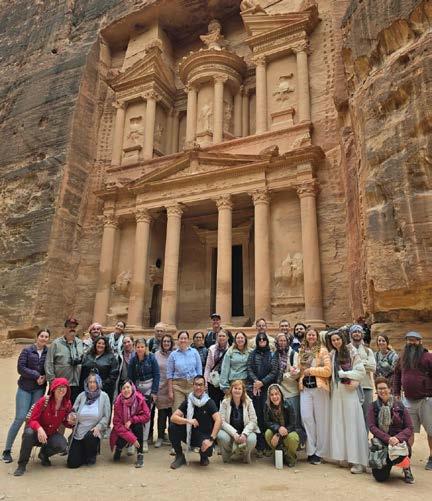
Join us for the trip of a lifetime!
25 Nov-10 Dec 2025
More info

Explore how to effectively engage with Islam in this intensive taught by Dr Adam Dodds. 24-28 Feb 2025
Brisbane
More info

Join other pastors and leaders for this 3 day intensive on becoming a more authentic, inspiring and effective leader. Taught by Prof Stephen Fogarty and special guests.
10-13 March 2025
Sydney and live-streamed
More info
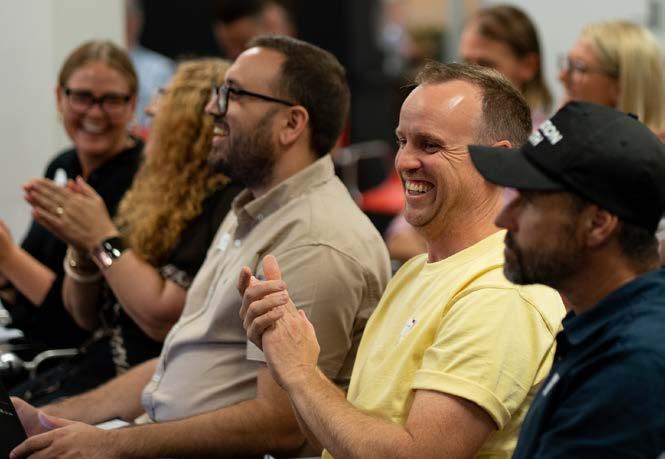


New courses in Theology, Community Services, and Professional Supervision
Semester 1 starts March 2025 Explore courses
By Allyson Parker
The beginning of any new year is the season for vision and the processes needed to implement ministry goals for the coming season. It is the perfect time to ensure that within that implementation are all the policy and procedures needed to ensure that teams and participants engage in God-honouring, life-giving and harm-free ministry.
Start the year strong
There have been significant updates to child protection, WH&S, and other legislation across multiple Australian jurisdictions. You, your Board, and your teams need to be aware of how this legislation needs to be upheld in your church.
Legislation to be aware of:
• Reportable Conduct schemes: NSW, ACT, VIC, TAS and WA
• Civil Liability Amendments: all States and NT
• Child Safe Standards: NSW, ACT, VIC, TAS
• Conversion practices bans: NSW, ACT, VIC
• Positive Duty to eliminate sexual harassment and discrimination in the workplace: all States and Territories with additional legislation in QLD
• Right to disconnect: all States and Territories
Are your Safer Churches documents up to date?
• Is it time to update risk assessments for your ministries?
• Do you have team induction manuals for your teams to assist them to implement ACC Safer Churches guidelines?
• Are all your teams compliant with working with children checks and are your records up to date?
• Are all your teams up to date with their Safer Churches training and do you have Codes of Conduct for your staff and volunteers?
• How well have you communicated your commitment to Safer Churches to your congregation?
We have a comprehensive range of supporting documents and templates available to assist you to implement your Safer Churches strategy in the ACC Safer Churches Implementation kit. These are available to download through the Safer Churches page on the ACC National website.
Additionally, the ACC Safer Churches Helpline (1800 070 511) is staffed by experienced team with pastoral ministry backgrounds, who can help you with reporting and responding to any child related concern.
ACC Safer Churches training for credential holders and volunteers has been updated and is available on demand with the training links on ACC National and State or Territory websites. Your ACC State or Territory website will also have information about state-based working with children checks and legislation.

ACC is committed to ensuring our churches and ministries are safe for all people, and we thank you for your ongoing commitment to protect children, young people and all vulnerable people from harm through your diligence in implementing the ACC Child Protection Policy and Safer Churches guidelines.
Allyson Parker is the national director of ACC Safer Churches.

By David Purnell
Volunteers are integral to the operations of many Australian churches, often forming the backbone of ministries, outreach programs, and community services. However, effective volunteer management requires churches to navigate legal obligations and best practices to ensure compliance and foster a safe, supportive environment for volunteers.
Understanding Legal Obligations Churches in Australia must adhere to several laws when managing volunteers. Although volunteers are not employees, they are still protected under various legislation, including workplace health and safety laws, anti-discrimination laws, and privacy regulations.
1. Workplace Health and Safety (WHS): Churches have a duty of care to provide a safe environment for volunteers. This involves identifying potential risks, offering appropriate training, and ensuring safety measures are in place during activities. This obligation extends to physical, emotional, and psychological safety.
2. Screening and Checks: Depending on the role, volunteers may require police checks or Working with Children Checks (WWCC). In most states, a WWCC is mandatory for anyone working with children in a volunteer capacity. Churches must ensure these checks are completed before volunteers begin their roles.
3. Privacy Compliance: Churches collect personal information from volunteers during recruitment,
such as contact details or medical conditions. Under the Privacy Act, churches must handle this information securely and transparently, only using it for its intended purpose.
4. Insurance Coverage: Churches should confirm that their insurance policies cover volunteers. Volunteerspecific policies often address accidents, injuries, or liabilities arising from voluntary activities.
1. Clear Role Descriptions: Providing written descriptions helps volunteers understand their responsibilities and reduces misunderstandings. This also clarifies the scope of the role for legal purposes.
2. Training and Support: Volunteers need adequate training to perform their duties safely and confidently. Regular feedback and support foster a positive experience and improve retention.
3. Volunteer Agreements: While not legally binding, agreements outline mutual expectations and demonstrate a church’s commitment to excellence in volunteer management.
4. Recognition and Wellbeing: Regularly acknowledging volunteers’ contributions enhances morale and encourages long-term engagement. Churches should also consider wellbeing initiatives, especially for volunteers working in emotionally demanding roles.

Bastion Systems provides comprehensive solutions to Australian Churches for compliance and stewardship across property and people.
Contact david@bastionsystems.com for further information on ensuring your church is managing volunteers effectively and meeting your legal obligations.
David Purnell is the founder of Bastion Systems. He is dedicated to supporting Australian churches in meeting their compliance requirements through straightforward, practical solutions. David brings extensive experience in corporate consulting, risk management, and leadership training, having worked with some of the world’s leading consulting firms.
www.bastionsystems.com


By Elisa Colak
Serving on boards has been one of the most rewarding ways to live out my faith, using the gifts God has given me, to lead with purpose and make a meaningful impact. I’ve had the privilege of serving in various board roles, including as Chair of the ACC National Youth Alive Board, Advisory Board Member for an IT company and Board Director of a charity. I’ve also previously served on the ACCI Missions Board and my church board. Each role has taught me valuable lessons about governance, collaboration, and the profound impact that a wellfunctioning board can have.
Not all boards are the same. In my experience, the best boards operate with integrity, wisdom, and a clear sense of purpose, built on trust, accountability, and a commitment to the organisation’s mission. They align decisions with their purpose, value diverse perspectives, and embrace the unique insights and empathy women bring. Effective boards balance oversight with empowering management while fostering respect and teamwork. Above all, they approach stewardship with care and discernment, thoughtfully managing resources and shaping the organisation’s future.
Serving as Chair of the ACC National Youth Alive Board has been an incredibly rewarding experience, both personally and spiritually. It has deepened my understanding of effective governance and its ability to transform an organisation’s mission. By leading the shift toward a more structured governance approach, I’ve had the privilege of contributing to a refined vision, broader scope, and more informed decision-making processes. This evolution has positioned us to attract essential funding, paving the way for Youth Alive to make an even greater impact in the future.
For women, stepping into board roles can feel daunting, especially in industries or organisations where representation has historically been low. But let me encourage you: serving on a board is not just leadership -it’s ministry. Seek governance training, pray for guidance, and connect with mentors. Board service is a profound opportunity to be God’s hands and feet in leadership. It allows us to steward resources, shape decisions, and amplify the mission of organisations that bring so much strength into the world.
Elisa Colak is the chair of the Youth Alive Board. She is a senior HR leader and experienced Board Director with over 15 years of leadership across diverse sectors. Having served on more than five boards, Elisa has a proven track record in driving strategic initiatives, building high-performing teams, and aligning organisational success with effective governance.

By Tania Harris
When God first spoke to me in a dream, I was confused. Not by the message itself - God’s message was colourful, but clear. As they say, a picture tells a thousand words and as master communicator, the Creator God knows just how to tailor His message to our situation. My confusion came from another place.
Before then, I’d never heard anyone talk about hearing God in dreams and visions. I’d never heard it in a sermon or read it in a book. When I told people about the dream, they rolled their eyes. My pastor called me strange. Then I started rereading my Bible and I was shocked by what I found.
Biblically speaking, hearing from God in dreams and visions is normal. These Spirit-inspired experiences communicate using picture language, and there are hundreds of them in the Bible. One commentator has said that if you were to take out all the dreams and visions from Scripture, you would remove more than one-third of its contents! While today we tend to distinguish dreams and visions by our level of consciousness – so we have ‘dreams’ while we’re asleep and ‘visions’ while we’re awake – the terms are used interchangeably in Scripture, and nearly every Bible character experiences them.
For a quick snapshot, there’s Abraham dreaming of a blazing torch passing through bloody animal parts, the symbols of ancient treaty-making (Genesis. 15:1–20), Jacob seeing angels flying up and down a staircase initiating a life-changing decision (Genesis 28:10–22) and Gideon gaining military assurance through a vision of a speeding bread roll (Judges 7:9–14). There’s Joseph and Daniel, Jeremiah and Zechariah, Amos and Ezekiel, and the list continues.
Fast forward to the New Testament, there are five dreams in the Christmas story ensuring Jesus’ survival, the apostle Peter envisaging a menu of unappetizing food directing his mission (Matthew 17:19), and the apostle Paul receiving travel directions (Acts 16:9). And who can forget John’s veritable movie of fantastical scenes in Revelation. Scripture indicates that dream-visions are God’s favoured mode of communication - his modus operandi.
My lack of awareness about dreams and visions in my early years is true of the contemporary church everywhere – at least in the West. God is speaking in dreams and visions today, even while our Western rationalistic thinking and unfamiliarity with symbolic language means we don’t recognise it (Job 33:13). And so the onus falls to us. The Spirit was poured out so we could hear God’s voice in visual ways (Acts 2:16,17). We must learn to recognise God’s favoured form of communication so that we can follow (John 10:27).
Tania Harris is an ACC pastor, practical theologian, author, broadcaster and the Director of God Conversations, a global ministry that equips people to recognise and respond to God’s voice.
©2024 Excerpt published with permission.


NEW RELEASE: God Dreams: How to Hear God’s Voice in Dreams and Visions by Tania Harris. CLICK HERE TO ORDER More info: godconversations.com


by Paul de Jong
“Our greatest challenge — even our worst prognosis — can end up becoming a life-giving platform for God to use.” – Paul de Jong What do you do when you run into what others would see as a dead end? When you’re told there is no hope? When everything feels impossible?
In his new book, ButGod…, Paul de Jong shares his personal experience of what it looks like to be confronted with the unexpected – in this case, an out-of-the blue diagnosis of inoperable, terminal cancer. Yet it’s also a story 30-plus years in the making, as lessons of faith learned earlier in life suddenly took on a whole new level of relevance.
Journey along with Paul for a fresh encounter with the Provider who is longing to bring you love, strength and new purpose even through the toughest of times.

Inspiring women's stories showing the way by Dr
Amanda Nickson
Hope For The Future captures the resilience, triumph and courage of 12 women from diverse backgrounds, sharing the personal stories of facing challenges yet found hope for the future.
The book candidly captures their life experiences, including living with disability, injuries and medical conditions, abuse as children; grief and loss; raising children with complex disabilities; experiences of violence; dyslexia, anxiety and depression; and defying role expectations and taking bold steps of faith.
Each story serves as a beacon of hope and empowerment, inspiring readers to embrace their own journeys with newfound strength and determination. This book is a must-read for anyone seeking inspiration and motivation.
Download a free chapter at www.

How to hear God's voice in dreams and visions by
Tania Harris
God’s most common way of speaking in biblical history is through dreams and visions. But today many of us are more likely to dismiss our visionary experiences as the product of a spicy meal rather than a potential message from God. But could we be missing out on the voice we so long to hear?
Drawing on her ministry experience, theological research and the Revelation experiences of the early church, Tania Harris explores the nature of dream-visions, where they come from, and how to interpret their symbolic and sometimes confusing language. You will learn how to hear God’s voice more clearly and that a picture truly can tell a thousand words.

“I’m possibly more excited to bring Season 5 to the world than any other season we’ve done,” said Dallas Jenkins, creator and executive producer of The Chosen
What started as a crowd-funded project has grown to over 250 million viewers and more than 17 million social media followers.
Following the success of Season 4's theatrical run, The Chosen: Last Supper (Season 5) will debut in cinemas in the weeks leading into Easter.
Shot in cinematic format, The Chosen: Last Supper brings the most pivotal week in history to audiences in this special theatrical release. The people of Israel welcome Jesus as king while his disciples anticipate his crowning. But—instead of confronting Rome, He turns the tables on the Jewish religious festival. Their power threatened, the country’s religious and political leaders will go to any length to ensure this Passover meal is Jesus’ last.
Beginning April 10, The Chosen: Last Supper Part One will roll out theatrically in over 40 global territories, including Brazil, Mexico, Australia, New Zealand, United Kingdom, Italy, Germany, Poland, Philippines, and India, among others. Later in 2025, the Season 5 will make its streaming debut.
WATCH: TRAILER OF THE CHOSEN SEASON 5


ACC EMAG #1 2025
Published by Australian Christian Churches. Editor: Daryl-Anne Le Roux editor@acc.org.au
Graphics & Media Assistant: Kieran Carlos
Proofreader: Elba Broadhead
Photography by:
p. 1 iStock
p. 4 Instagram @accsnapshot
p.10 Pexels
p. 13 ACCI
p. 14 Via Dolorosa DALR
p. 16 Pexels / Tuu Can
p. 17 Centrepoint Church
p. 23 Instagram @accsnapshot
p. 24 Pexels / Vinícius Caricatte
p. 26 Pexels / Leah Newhouse
p. 29 Oasis Church
p. 31 Youth Alive Queensland
p. 32 Youth Alive Queensland
0. 35 Pexels / Gabby K
p. 36 Pexels / Alex Azabache
p. 38 ACCI
p. 40 Pexels / Tuan Nguyen
p. 45 Pexels / Yan Krukau
p. 47 Pexels / RDNE
p. 48 Pexels / Fauxels
p. 51 Pexels / Ron Lach
p. 53 The Chosen
ACC EMAG is published four times a year. Visit www.acc.org.au/emag to read more editions.
ACC National PO Box 8093 Norwest NSW 2153
No part of this magazine may be reproduced without the written permission of the publisher. All rights reserved. ©2025 Australian Christian Churches.